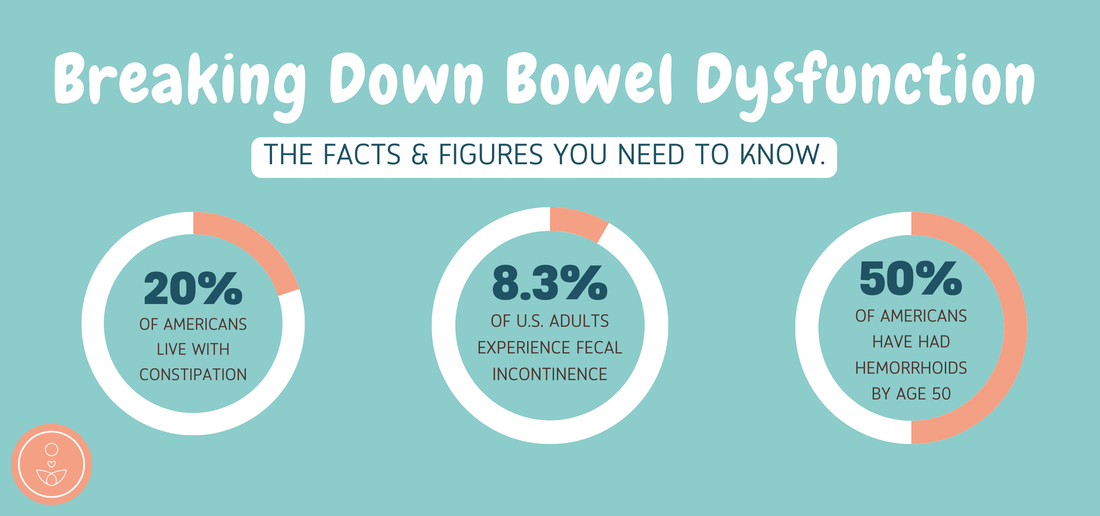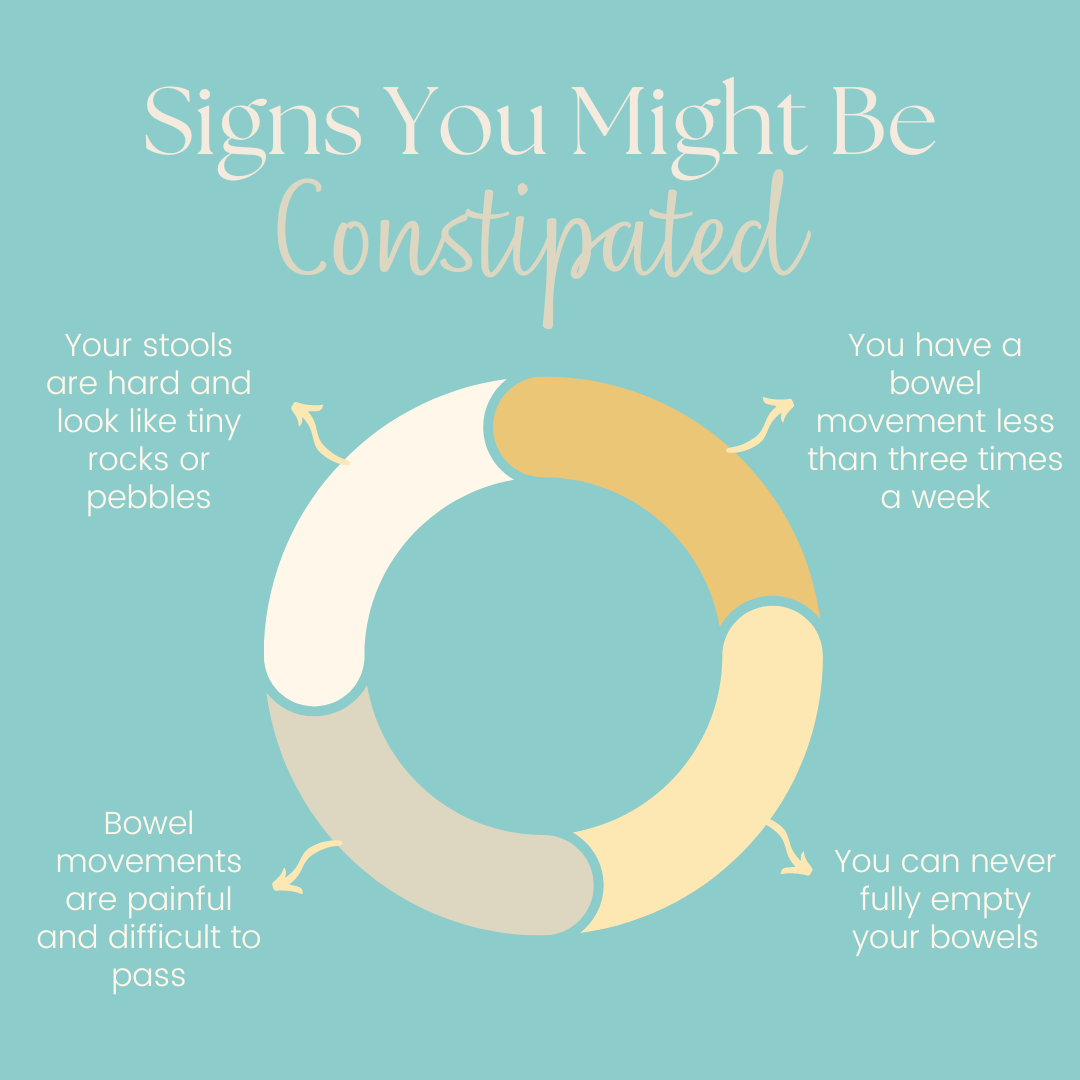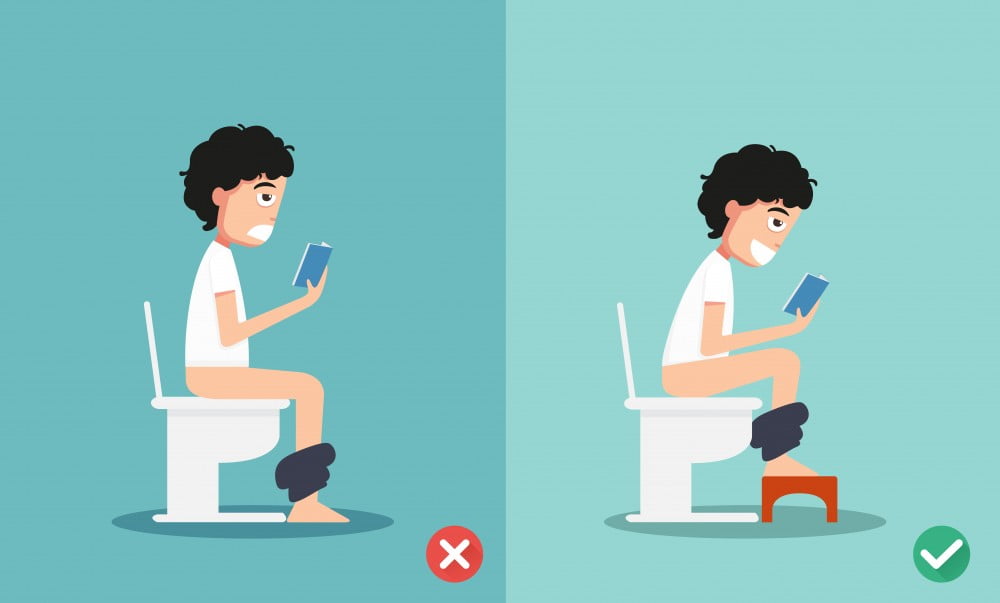|
Wait…That’s Not Normal?! Now that we have a clear understanding of the bowels, how they function, and what’s considered “normal” when it comes to bowel movements (if you’re thinking “WAIT! What are they talking about?!” check out our last blog post for more information) it’s time to understand what’s NOT normal. There are symptoms that you might be experiencing without even realizing that they're symptoms because they've “always” been a part of your life or it happens to “everyone” in your family, or your mom told you “It’s just a part of getting older”. However, let's reiterate that just because it’s common, doesn't mean it’s normal! There is no reason for you to be struggling through your daily life with painful constipation, embarrassing fecal leakage, or gas that sneaks up on you. If you find yourself saying “This is totally me…” keep on reading! In this blog will be diving into the ins & outs of constipation, why you may be leaking stool, and the truth behind gas that slips out at the worst possible time. So, let’s get into it! Let's Talk About Constipation The Cleveland Clinic defines constipation as a phenomenon when bowel movements become increasingly less frequent, and stools become more difficult to pass, leading to three or fewer bowel movements in a week. Oftentimes, those who experience constipation find it painful to pass a bowel movement and may complain of bloating or the feeling of not being able to get it all out when using the restroom. When you’re constipated, your stool will often present itself as hard, small rocks or pebbles. This happens because the stool has been in the large intestine for too long, giving the intestine ample time to absorb all the water that was once contained in the stool. So, let’s recap…you may be constipated if: • Your stools are hard and look like tiny rocks or pebbles • You have a bowel movement less than three times a week • Bowel movements are painful and difficult to pass • Even after having a bowel movement, you feel like your bowels aren’t emptied completely The Two Types of Constipation: General & Outlet General Constipation is characterized by the reduced mobility of the large intestine, causing waste to move extremely slowly through the digestive system. There are several factors that can lead to this type of constipation, including a bad diet, poor exercise routine, inadequate water intake, as well as many types of medications. Outlet Constipation occurs because of inadequate or abnormal coordination of the pelvic floor muscles. In this case, the stool makes it to the rectum, but has a difficult time exiting, causing it to hang out there for too long. This can be caused by several things, but the most prevalent is an overactive pelvic floor, or those muscles being too tight and tense. When these muscles are accustomed to being in a short, contracted state, it can make it extremely difficult for them to sufficiently relax enough for stool to pass without pain. Common side effects of this classification of constipation include excessive straining, avoiding bowel movements due to fear of pain, and thin, hard stools. When dealing with frustrating, painful constipation, the first step is to determine which type you're dealing with. Is what you’re experiencing general constipation or outlet constipation? We recommend being open and honest with your physician about your symptoms, your diet and lifestyle, and any medications you take frequently so they can best help you. If you feel like you’ve “tried everything,” been to doctors, changed your diet, exercise routine, lifestyle in general, and you’re still struggling with painful, frustrating constipation, pelvic floor PT is a must. By working with an experienced pelvic floor physical therapy specialist, you will receive hands on treatment as well as learn valuable tips, tricks, and techniques for you to utilize in the comfort of your own home if the symptoms ever arise again. Dealing with painful constipation can be an uncomfortable and frustrating experience. While waiting for your physical therapy appointment, there are a couple of things you can do to alleviate the symptoms. Here are two tricks that we often recommend:
Fecal Incontinence / Accidental Loss of Gas
Fecal incontinence is a condition characterized by the loss of control over bowel movements, leading to the unintentional leakage of gas or stool. The severity of the condition can range from occasional gas slipping out during physical activity to the complete loss of bowel control. Fecal incontinence can occur due to urge, when you're on your way to the bathroom but don't quite make it, or passive leakage, where a person is unaware that they have lost control until they reach the bathroom. Pelvic floor dysfunction is a common cause of fecal incontinence, including accidental loss of gas. Weakness, tightness, or impaired motor control of the pelvic floor muscles can affect their ability to hold back and release feces and gas appropriately. Living with fecal incontinence can be challenging, and many people find it embarrassing and difficult to talk about with healthcare providers. However, it is essential to seek treatment as fecal incontinence can significantly impact one's quality of life. According to research, around 6% of women younger than 40 experience fecal incontinence, and it increases to 15% in women over the age of 60. It's crucial to remember that you're not alone and that seeking help is a crucial step towards finding relief. Making an appointment with a pelvic floor physical therapist can help you address the issue and regain control over your bowel movements. A pelvic floor physical therapist can assess your muscles and use various techniques such as manual therapy and muscle retraining to help you manage your symptoms and improve your quality of life. In conclusion, fecal incontinence is a prevalent condition that should not be ignored. Seeking help from a pelvic floor physical therapist can help you regain control over your bowel movements and improve your overall quality of life.
0 Comments
Leave a Reply. |




 RSS Feed
RSS Feed